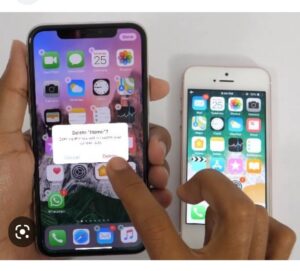
You will not understand the importance of this course, until you wear the strong shoes of the victims. Everything that has advantages equally have disadvantages. A lots of people have died because of the fake bank alert as the ungodly ways people goes about defrauding peoples. Technology is good, but the one that will force people to commit suicide in the name of heart attack will be critically look into.
Cashless policy generation! Yea, i don’t have problem with that but the way fraudsters are abusing the idea is so disheartening.
These days, customers walk into your office for a business that will propagate online financial transaction and you will end up receiving the fake alert. Recently, A lady was duped in the name of fake transfer. The transfer were made to her by some well dressed men who came in disguise to buy infinix hot6x smartphone. So it will be very difficult to beat those guys (fraudsters) if you re not the careful type. Most of their pranks appears to be real at a glance but with a disastrous end.
This article will softly guide you through in some of the best ways to differentiate from real bank alert to fake ones. All you need to do is to walk down with me as we go through the points.
……………
1. Always know your previous bank balance in your head so that you know if it has added up
2. Don’t use your SMS to check bank alert, don’t depend on your SMS because scammers can manipulate the SMS , always check your alert from your bank Mobile app. Also, the alert may be delayed In sms, but your bank Mobile app will show it immediately . Don’t depend on SMS, check your balance through App
3. Open an email with your bank. So that your bank will always send an alert to your email. Email does not show fake alert, Emails only show real alert, so if you don’t see the alert in your email. It’s fake
4) If you’re a business person. Don’t easily trust customers especially your new client when they send money to you except you have confirmed it. Most of these scammers dress nicely and they drive clean cars. You may look at their appearance and think they cannot scam you. My dear it’s a lie. They have money but they still want to scam the poor .
5) Don’t allow any customer rush you during transaction. Some of them will rush you . Saying they want to attend to a meeting somewhere. Don’t let anyone go without confirming your alert . Even if they show you debit alert, don’t believe it because most of them will ask for your account number and insert the pin. While the transaction is going on, they will cancel it but the bank will send them debit alert . They will take the debit alert and show you to believe
But later the bank will reverse the money to their account because it was a cancelled transaction
6) When the person that wants to do the transfer ask for your phone number, give the person a phone number that is not connected to your bank. If you receive alert in that phone number, know it’s a fake alert
7) Know how your bank mask account numbers. Some banks will mask the middle digit of your account leaving the last four digits “4563*********5674” . Some banks will mask all leaving only the last four digits “*************6743” .
Pay attention to the message title . Some bank use “Acct” while some use “Acc”. And also pay attention to the case your bank uses if it is small or capital letters. Some bank uses “ACCT , ACC or Acc and Acct . So know the case your bank uses.
9) Some bank present credit alert as “CR:NGN545,700. While some uses “CR:N5,000. So know the methods your bank uses and also pay attention to the case if they use small letters “cr” or capital letters “CR”
And the last one is that fake alert does not come with Kobo. Real alert shows “6000.56” but fake alert only shows “6,000.









